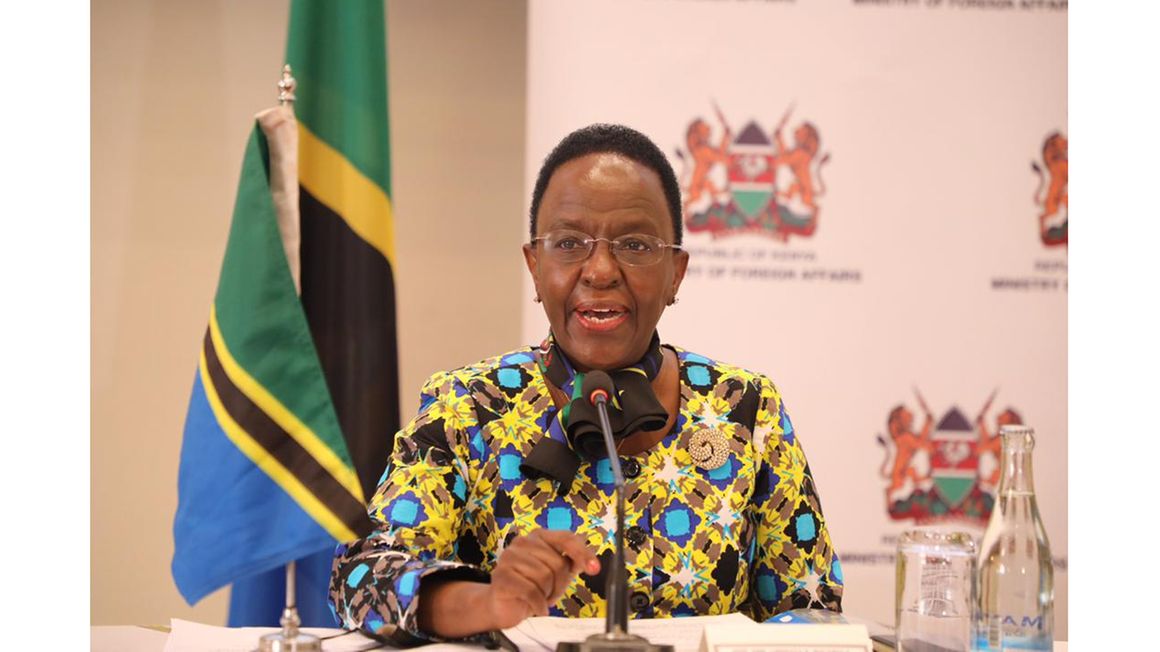
Foreign Affairs and East African Cooperation minister LIBERATA MULAMULA PHOTO | COURTESY
Dar es Salaam. Tanzania’s Foreign Policy, which has been operational since 2001, is currently undergoing major reviews in a bid to reflect the current national and global affairs.
This was revealed recently during an online discussion hosted on social audio space Club House – organised by Centre for International Policy (CIP), and focusing on Tanzania’s Foreign Policy: history, where we are, and the future.
Foreign Affairs and East African Cooperation minister Liberata Mulamula listed the reasons necessitating the review.
Ms Mulamula said that first was government’s economic diplomacy drive focusing on the blue economy agenda that seeks to align with international policies, for example, ocean safety. She said Zanzibar was making a headway with this agenda and strategies were already being implemented.
“Our efforts will also be on counter-terrorism and ensure we benefit from the blue economy resources,” she said.
On climate change, she said a global concern was also on the list of Foreign Policy focus. “We want to be on one accord with regional and international policies as championed by President Samia Suluhu Hassan at the Glasgow summit last year,” said Ms Mulamula.
Digital economy is another factor that will be keenly looked at in the new foreign policy as the government looks to develop a digitally-inclined economy to attract foreign markets, grow tourism, and enhance the use of technology in diplomacy.
“Using technology in diplomacy is the way things are done today, as such, Tanzania will not be left behind. So, we are pushing for digital diplomacy to stay abreast with international standards,” said the minister.
The government’s agenda to popularise Kiswahili globally has seen the effort make it to the list of priority areas in the Foreign Policy review. According to Mulamula, this specific focus area looks to grow the Swahili tradition and make Swahili marketable globally. “It aligns with Unesco’s decision to mark Swahili globally every July 7,” she said.
The issue of diaspora, specifically the role of Tanzanians in the diaspora in national development and their legal status in relation to nationality makes the fifth focus area in the foreign policy review. “The government acknowledges the need for diaspora participation in national development and contribution in building our economy. As such, the diaspora will be factored in the new foreign policy,” said Ms Mulamula.
Issuing his remarks, Ambassador Ami Mpungwe said that Foreign Policy has always been based on strong domestic principles on a number of issues. “Since colonial times, our struggle for independence aligned with the desire to unite Africa.
He said it was under the philosophy of African Nationalism and Pan-Africanism as advocated by Julius Nyerere,” he said. He thus added that the new Foreign Policy would be an extension of Tanzania’s vision since independence struggles.
“Tanzania has always maintained its non-alignment policy to bring peace to the world and uphold humanitarian values, democracy and rule of law,” he said.
For her part, Ambassador Amina Ali said Tanzania has projected itself as having the capacity to export value-added products through its economic diplomacy policy. Noting that in the past years Tanzania and other developing countries had concerns over foreign markets being held by people who were producing their products.
“We have good investment policies that have enabled our products to get foreign markets after value-addition,” she said.
In another development, she said to strengthen the innovation sector including startups and acceleration it was imperative for Tanzania to develop its digital economy which is broad, but has lucrative opportunities.





No comments :
Post a Comment